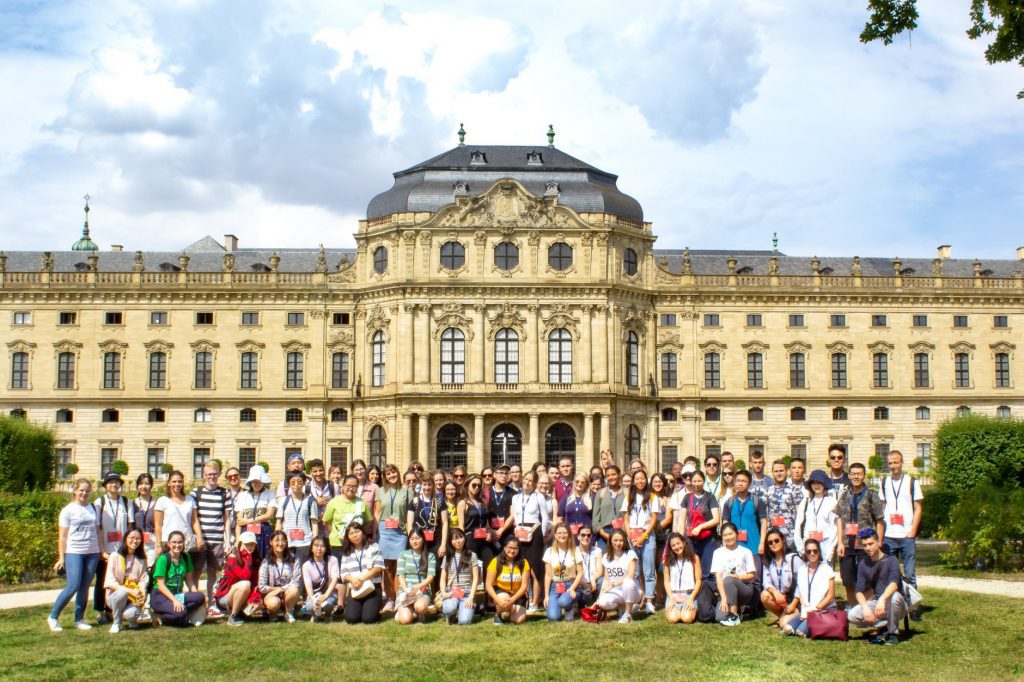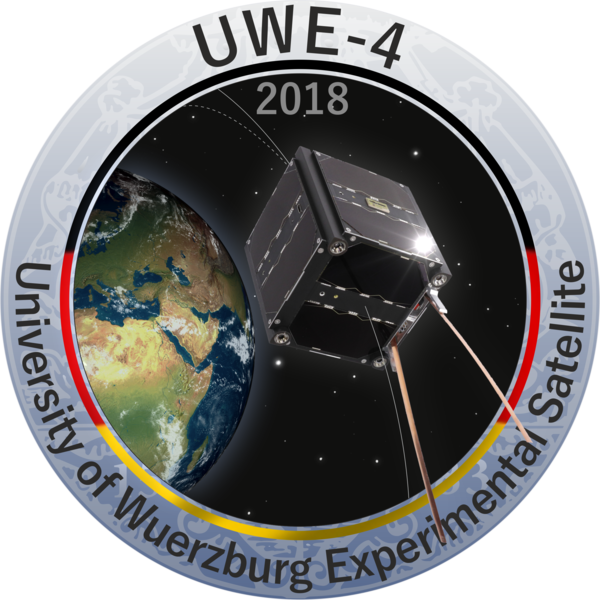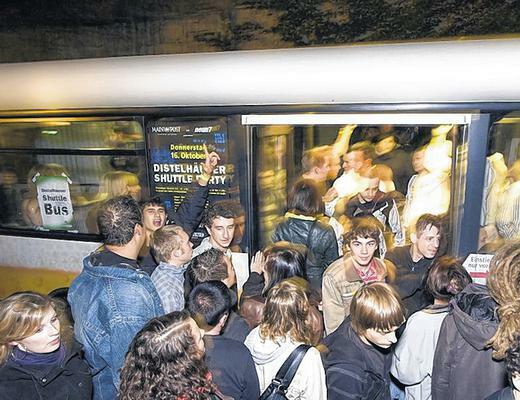University of Würzburg
Julius Maximilians University
Founded in 1402, the University of Würzburg has maintained an excellent reputation for centuries: Wilhelm Conrad Röntgen discovered X-rays here, for which he received his first Nobel Prize in 1901. To date, 13 other scientists who have conducted research and taught at the University of Würzburg have been awarded the Nobel Prize. Around 22,000 students study and conduct research at the Julius Maximilians University in ten different faculties. With the North Campus on the former US Army base, the university continues to serve a growing number of students.
From traditional subjects such as medicine and law or exotic subjects such as Far Eastern cultures to future-oriented interdisciplinary subjects such as digital humanities or nanotechnology. The University of Würzburg is also the center of teacher training in northern Bavaria. In research rankings, it is usually in the top group of German universities. The university has graduate programs for all major subject areas (Life and Natural Sciences, Humanities, Science and Technology and Graduate Studies in Law, Economics and Society). The Institute of Life Sciences is funded by the German Research Foundation as part of the Excellence Initiative.

The University of Würzburg is recognized worldwide as a research university. Its position in national and international rankings is further evidence of its success (the university is ranked U15 in Germany and among the top 140 in international rankings).
A satellite as small and light as a tetrapack of milk is perhaps the best example of what makes the Julius Maximilians University of Würzburg (JMU) so special. The Franconian space probe UWE-1 has been orbiting the earth for ten years. Built by international students under the direction of the Robotics Department, generations 2, 3 and 4 of this satellite have been designed and sent into space. The latest status of the UWE-4 satellite can be viewed online at https://dashboard.satnogs.org/d/fmJ8wnlmk/uwe-4?refresh=1m&orgId=1&from=now-7d&to=now.

The school has another very interesting feature. There is a program for undergraduate students to “encourage thinking outside the box”. In addition to a large number of cross-subject master’s programs, since 2006 undergraduates can complete 30 ECTS (credit) courses from other faculties and departments of their choice with virtually no restrictions. Law students can take an English course, business economists can take a course in intercultural communication, biologists can study chemistry if interested, or political scientists can take courses such as “Civil Law for Non-Lawyers”. To do this, “Simply choose from the many courses listed”
The university has 6 cafeterias spread across the campus and the city. Each cafeteria offers a choice of meat/chicken, vegetarian and vegan menu options. For students, a meal with a main course, side dish, dessert and a drink is roughly 5 Euros. With the semester ticket included in the 142 Euros students pay per semester, you can use all local public transportation 24/7 for free. You can find the coverage area where the ticket is valid at https://www.studentenwerk-wuerzburg.de/fileadmin/Daten/Geld/Wabenplan_2020.pdf.

In the evenings in Würzburg you have the opportunity to get away from the stressful daily life at the university in numerous student venues. However, the earlier you go on a tour, the better, according to veterans. If you are late, it is almost impossible to find a comfortable place (especially on weekends). First-year students get a comprehensive insight into Würzburg nightlife at the “Shuttle Party”. At the beginning of each semester, overcrowded buses carry fun-seeking students from one bar or disco to another. The good news is that in and around Würzburg there is almost always something to celebrate: African festival, tango festival, harbor summer festival, Mozart festival, free and open-air festival, city festival and countless wine festivals in small towns
UNIVERSITY OF WÜRZBURG IN NUMBERS
| Date of foundation | 1402 |
| Total Number of Students | 27.552 |
| Semester Fee (includes public transportation ticket) | 142 € |
| Tuition Fee | Free |
APPLICATION TO THE UNIVERSITY OF WÜRZBURG
You will apply to the international office of the University of Würzburg. There are forms on the website for this. First of all, HZB is required (See Applications to German University Undergraduate Programs – What is HZB?). Proof of your language proficiency is also required during the application. For applications to undergraduate, teacher training and law programs, you must present at least a B2 certificate with a “good result” or a C1 certificate with a “passing result” (if you are accepted, you will have to take and pass a DSH exam before enrollment), while for applications to undergraduate programs in medicine, dentistry, biomedicine, German philology, pharmacy and psychology, you must have at least the following certificates.
Goethe C2 Certificate
telc Deutsch C1 Hochschule
TestDaF certification at TDN 4 level
If you submit a German certificate at level A2 – B1 and you have the necessary qualifications, you will receive confirmation that you are eligible to study in Germany. This means that you have to attend DSH preparation courses before you can be admitted to the program. The school does not have its own course, so you have to enroll in one of the private courses. As soon as you reach level C1, you have to apply again to the International Student Office. If you can find a place at the university, you will be invited to take the DSH exam
While it is possible to apply to German Master’s programs (except biomedicine, chemistry, social sciences sustainability research and management) with the language certificates listed above such as medicine, pharmacy, etc., you can apply to some master’s programs such as biomedicine and chemistry with a B2 German certificate. For master’s programs in English, I recommend you to make a detailed review about the program you want here.
Did I help you? If you have any questions, you will probably find the answer on these pages, but you can still contact me at recep[at]recepdayi.com.tr and on my social media accounts. I try to improve my articles according to your feedback, so please send me your comments. Thank you in advance.
Knowledge grows as you share it. Please share




